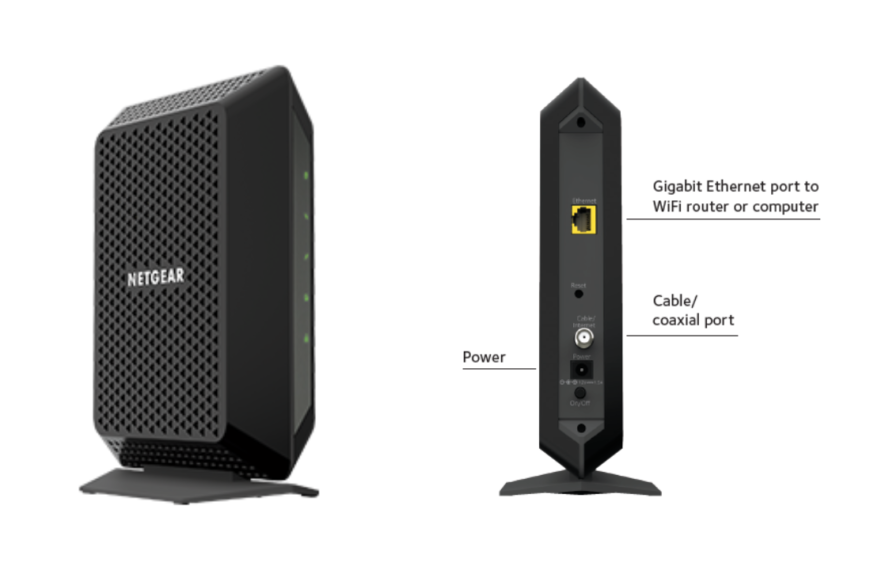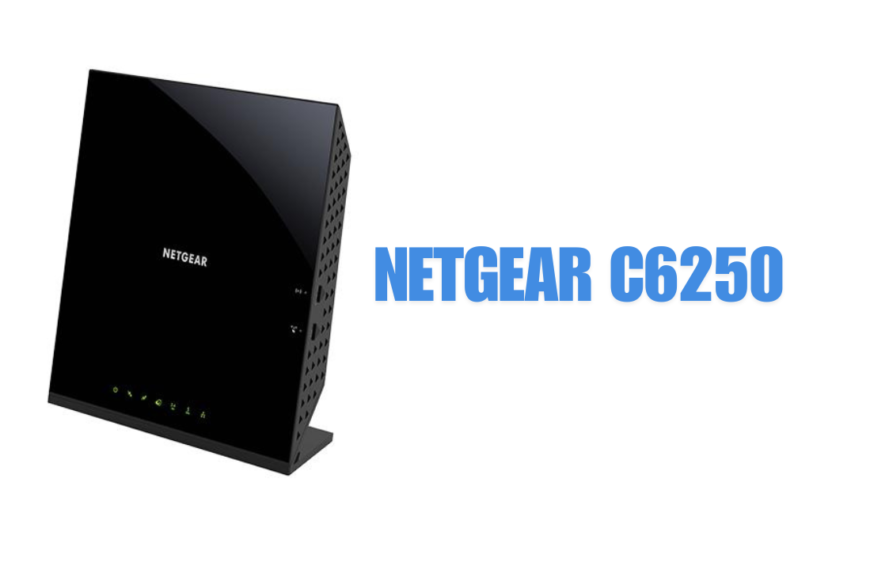The world has experienced a rapid shift towards digitalization. What was once a slow and gradual change has now become an undeniable force, reshaping how businesses operate and interact with their customers. From cloud computing to e-commerce and social media, businesses have increasingly turned to digital tools to streamline operations, enhance customer experiences, and stay competitive in an ever-evolving market. The rise of digital platforms has brought about greater efficiency, accessibility, and engagement, making it easier for businesses to reach a global audience and deliver services with minimal effort.
One of the latest technological trends to emerge within this digital wave is the Metaverse—a fully immersive, digital universe where users can interact with each other and their environment in real-time, all within a 3D virtual space. Combining elements of augmented reality (AR), virtual reality (VR), and blockchain technology, the Metaverse represents a new frontier in digital interaction. This virtual world allows users to shop, socialize, work, and even play games in ways that were once confined to the realm of science fiction.
For businesses, the Metaverse opens up a wide range of possibilities, creating new avenues for marketing, customer engagement, and even the creation of virtual storefronts or offices. As the Metaverse continues to grow and attract millions of users, businesses must adapt to this technological shift to stay relevant and maintain a competitive edge. The companies that embrace the Metaverse early on stand to benefit from its unlimited opportunities, from enhancing brand visibility to offering innovative customer experiences. Adaptation isn’t just an option anymore; it’s quickly becoming a necessity for businesses that want to thrive in the future.
Understanding the Metaverse
The Metaverse is often described as a collective virtual space that blends physical and digital experiences, creating an immersive, interconnected world where users can interact with each other and their environment. It is a space made up of 3D virtual worlds that exist parallel to our own, allowing individuals to explore, socialize, work, and even shop within these environments. These worlds are designed to replicate real-life interactions but in a fully digital and augmented manner, offering users a sense of presence and immersion that goes beyond what we currently experience on traditional digital platforms.
At its core, the Metaverse combines several components:
- 3D Virtual Worlds: These are the digital environments where users can interact, explore, and socialize. Whether it’s a virtual city, office space, or entertainment venue, these worlds are crafted using computer graphics to create a rich, lifelike experience. Users can visit these spaces via avatars—personalized digital representations of themselves.
- Social Connections: One of the primary aspects of the Metaverse is its focus on social interaction. Users can meet and communicate with others through their avatars, participate in group activities, attend virtual events, or engage in professional networking. Social interaction is designed to mimic real-world experiences, from casual chats to business meetings.
- Augmented Reality (AR) and Virtual Reality (VR): The Metaverse thrives on technologies like AR and VR, which help create the immersive and interactive experiences users enjoy. Virtual Reality (VR) enables users to fully immerse themselves in a digital environment using VR headsets. These headsets track head and body movements, allowing users to look around and physically interact with virtual spaces. On the other hand, Augmented Reality (AR) overlays digital elements onto the real world, blending physical reality with virtual elements. Both technologies enhance the Metaverse by providing a deeper sense of presence and realism.
The Metaverse isn’t a singular platform or location—rather, it’s a network of interconnected virtual worlds that exist across various platforms. These platforms are built upon powerful technologies like blockchain (for secure transactions) and cryptocurrency (for virtual economies), allowing for decentralized ownership and exchange within the Metaverse.
Several platforms have already ventured into the Metaverse, each contributing in its own way to this growing digital ecosystem:
- Facebook (Meta): Perhaps the most notable example, Facebook rebranded itself as Meta in 2021, signaling its commitment to building the Metaverse. Through its acquisition of Oculus (a leader in VR technology), Meta has created platforms like Horizon Worlds, a virtual environment where users can interact, play games, attend events, and even create virtual businesses. Meta’s focus is on connecting people in new ways, making it one of the largest contributors to the Metaverse vision.
- Decentraland: A virtual world built on the Ethereum blockchain, Decentraland allows users to buy virtual land, build structures, and create digital experiences. It’s a fully decentralized platform where users have control over their virtual property and can monetize their creations.
- Roblox: While initially seen as a gaming platform, Roblox has evolved into a social experience where users can create games, socialize, and even purchase virtual goods. With millions of active users, it exemplifies how the Metaverse is already attracting younger generations looking for interactive virtual spaces.
These are just a few examples of platforms within the Metaverse, but the possibilities are vast. As the Metaverse continues to evolve, it’s expected to become more interconnected, offering businesses an even greater opportunity to establish a presence, engage customers, and create new revenue streams. Understanding this evolving landscape is key for any business looking to explore the Metaverse and leverage its potential.
Why Businesses Should Care About the Metaverse
As digital transformation continues to reshape industries across the globe, the Metaverse represents a significant step forward in how businesses operate, engage with customers, and create new opportunities for growth. The Metaverse is not just a passing trend; it is rapidly becoming an integral part of the digital landscape, offering businesses an entirely new way to connect with their audience, enhance their branding, and build innovative digital experiences. For any business looking to stay competitive in the digital age, adapting to the Metaverse is becoming essential.
The Role of the Metaverse in Digital Transformation
The Metaverse plays a pivotal role in digital transformation by providing businesses with immersive, interactive, and scalable platforms to reinvent their customer interactions. Traditionally, businesses have relied on websites, social media, and physical stores to engage with consumers. However, the Metaverse takes these interactions to the next level, offering fully immersive digital spaces where businesses can host events, product launches, and provide customer service in a more engaging manner.
For example, virtual stores can now be created within the Metaverse, allowing businesses to showcase their products in 3D environments. Customers can explore and interact with items as if they were in a real-world store, all while enjoying the convenience of online shopping. The Metaverse also facilitates the creation of virtual showrooms, brand experiences, and social spaces where users can connect with other customers and businesses, blurring the lines between digital and physical worlds.
As more companies embrace the Metaverse, businesses that fail to adapt risk being left behind. The Metaverse offers companies the ability to create more engaging, personalized, and memorable experiences that will resonate with today’s digital-savvy consumers. For businesses that want to remain relevant in this evolving digital world, the Metaverse is no longer an option it’s a crucial component of their digital strategy.
How Businesses Can Use the Metaverse for Marketing and Customer Engagement
The Metaverse offers a wealth of opportunities for businesses to reach their target audience in innovative ways, making it a powerful tool for marketing and customer engagement. Here are some ways businesses can leverage the Metaverse for these purposes:
- Immersive Brand Experiences: Through the Metaverse, businesses can create virtual environments where users can engage with the brand in fun and interactive ways. For example, a fashion brand could host a virtual runway show where users can watch the latest collection, purchase virtual versions of the clothing, or even try on items using their avatars. This level of engagement creates a stronger emotional connection with consumers, fostering brand loyalty and increasing sales.
- Virtual Events and Product Launches: The Metaverse allows businesses to host virtual events, such as product launches, conferences, and trade shows, that are accessible to a global audience. Brands like Nike and Samsung have already begun hosting virtual pop-up stores and events within Metaverse platforms, allowing them to reach customers who may not have attended in person. These events provide businesses with an innovative way to showcase their products while creating a memorable experience that leaves a lasting impression on attendees.
- Personalized Marketing: By utilizing data from Metaverse interactions, businesses can personalize their marketing efforts to a much greater extent. For example, through AI and VR/AR technologies, businesses can analyze how users interact with their virtual spaces, what products they engage with, and tailor content to meet their preferences. This level of personalization allows businesses to deliver targeted marketing that feels more relevant and engaging to customers.
- Social Commerce: The Metaverse also enables businesses to tap into social commerce, where customers can purchase products directly within the virtual world. Just as users engage with social media platforms, they can now browse, discuss, and purchase items in real time. This creates an opportunity for businesses to enhance their online presence by integrating e-commerce capabilities directly into virtual spaces, making it easier for consumers to make purchases without leaving the environment.
Overview of the Virtual Marketplace and Opportunities for Businesses to Expand Their Reach
The virtual marketplace within the Metaverse represents a significant shift in how businesses conduct transactions. Just as e-commerce revolutionized shopping by providing businesses with global access to consumers, the Metaverse takes this concept to new heights by offering immersive, interactive shopping experiences in a digital world. Companies can set up virtual stores where users can browse products, try them out in a virtual environment, and make purchases—whether they are physical goods or digital assets such as NFTs (Non-Fungible Tokens).
Some of the major opportunities for businesses within the virtual marketplace include:
- Global Reach: The Metaverse is inherently global, providing businesses with access to a vast, diverse audience without the limitations of geography. Unlike traditional brick-and-mortar stores, virtual stores in the Metaverse can be visited by anyone, anywhere, at any time. This expanded reach opens up new markets and allows businesses to connect with potential customers across the world.
- New Revenue Streams: Businesses can explore new forms of revenue in the Metaverse, such as selling virtual goods, digital collectibles, or branded experiences. Companies can create exclusive digital items that users can purchase to personalize their avatars or enhance their virtual experience. This trend is already gaining traction in industries like gaming, fashion, and entertainment, where virtual goods are becoming a profitable business model.
- Increased Brand Visibility: As more companies establish a presence in the Metaverse, businesses that adapt early will benefit from increased brand visibility. Being one of the first to create a virtual store or experience can generate buzz and attract attention from early adopters. In addition, the ability to host virtual events, collaborate with influencers, or engage in cross-platform promotions increases brand awareness and expands a business’s reach in creative ways.
- Enhanced Customer Loyalty and Engagement: The immersive nature of the Metaverse makes it an ideal platform for fostering customer loyalty and long-term engagement. By creating engaging experiences, hosting events, and offering exclusive virtual products, businesses can build a stronger connection with customers, encouraging repeat visits and brand advocacy.
As the Metaverse continues to grow, its virtual marketplace will become an increasingly important platform for businesses looking to expand their reach and innovate in new ways. By adapting to this new digital frontier, businesses can tap into an exciting array of opportunities that will shape the future of marketing, sales, and customer engagement.
The Role of Metaverse Consultancy
As businesses increasingly look toward the Metaverse as a space to expand and innovate, many find themselves facing the challenge of understanding and navigating this complex, evolving technology. The Metaverse is not a one-size-fits-all solution; its implementation requires a deep understanding of its various components—such as virtual reality (VR), augmented reality (AR), digital economies, and social interaction platforms. For many business owners, this is uncharted territory, and this is where Metaverse consultancy comes in, providing the expertise needed to integrate the Metaverse into business strategies effectively.
The Need for Expertise in Understanding and Implementing the Metaverse for Businesses
The Metaverse is still in its early stages of development, and while it offers incredible opportunities, it also presents a steep learning curve for businesses unfamiliar with its intricacies. Many business owners may understand the potential benefits of the Metaverse but struggle with how to practically implement it in ways that align with their goals.
Metaverse consultancy offers the expertise required to break down these complexities. Consultants with experience in virtual environments, digital economies, and immersive technologies are vital in helping businesses design and deploy strategies that integrate these new tools effectively. Without this expertise, businesses risk wasting time and resources on poorly executed Metaverse projects that fail to deliver meaningful results.
Consultants can guide businesses on what technologies to use, the best platforms for their goals, how to reach target audiences in these virtual spaces, and how to integrate the Metaverse with existing business models. Essentially, a Metaverse consultancy provides the know-how and the strategic advice necessary to leverage the Metaverse for business growth and success.
How Metaverse Consultancy Can Help Business Owners Navigate and Leverage the Technology
Metaverse consultants act as trusted advisors who assist businesses at various stages of Metaverse adoption, from initial understanding to implementation and beyond. Here’s how consultancy services can add value:
- Strategy Development: Consultants can help businesses develop a clear, actionable strategy for entering the Metaverse. This includes identifying goals, target audiences, and the most suitable virtual platforms. For instance, a fashion brand might aim to create a virtual store in the Metaverse, while a tech company could use it for product demos and immersive workshops. A Metaverse consultancy will evaluate the needs of the business and align the virtual strategy accordingly.
- Technology Integration: Implementing the Metaverse involves several technical layers, including AR and VR technologies, blockchain, and even NFTs for digital transactions. Consultants ensure businesses use the right technology stack to support their Metaverse ambitions, minimizing friction and ensuring smooth integration with current systems.
- Training and Support: For businesses unfamiliar with virtual environments, Metaverse consultancy can provide ongoing training and support to teams, helping them get up to speed on how to operate in these digital spaces. This could involve training employees on how to manage virtual stores, host events, or interact with customers through avatars.
- Customization and Branding: The Metaverse offers businesses the opportunity to design virtual environments that reflect their brand identity. Consultants can help businesses create immersive virtual experiences that align with their branding, ensuring that the virtual experience is just as engaging and effective as the physical one.
- User Experience (UX) Design: Creating an intuitive, user-friendly experience within the Metaverse is essential for business success. Consultants with expertise in UX design can assist in developing virtual environments and interfaces that are easy to navigate, ensuring that customers have positive experiences, which increases the likelihood of repeat visits and transactions.
Key Areas Where Metaverse Consultancy Adds Value
A Metaverse consultancy provides value across several key areas where businesses can leverage the technology to achieve their goals. These areas include:
- Setup and Implementation: Consultants help businesses set up their Metaverse presence by selecting the right platforms (e.g., Decentraland, Horizon Worlds, or custom-built environments) and technologies (VR headsets, AR apps, and NFTs). The setup phase also includes defining the business’s goals for the Metaverse and laying the groundwork for how it will be integrated into their existing digital infrastructure.
- Marketing Strategies: Traditional marketing strategies won’t necessarily work in the Metaverse. Instead, businesses need to adapt their marketing approaches to take advantage of the virtual nature of the space. Metaverse consultants assist in crafting innovative marketing strategies, from hosting virtual product launches to creating branded virtual goods and experiences. They also help businesses engage with influencers and users in the Metaverse to build awareness and drive customer interest.
- Virtual Experiences: The heart of the Metaverse lies in the immersive experiences it offers. Metaverse consultancy helps businesses design and execute these experiences, whether through virtual product demonstrations, customer service spaces, or fully realized virtual stores. By creating captivating and meaningful interactions, businesses can connect with customers on a deeper level and stand out from competitors in the digital space.
- Monetization: Consultants can guide businesses in exploring various monetization models within the Metaverse. Whether it’s through the sale of digital goods, offering paid virtual experiences, or utilizing NFTs for limited-edition products, Metaverse consultants help businesses identify revenue streams unique to the virtual world.
- Data Analytics and ROI Measurement: A key concern for any business entering the Metaverse is measuring the success of their efforts. Consultants can help set up systems to track key metrics, such as customer engagement, virtual sales, and brand awareness, ensuring that businesses can evaluate the return on investment (ROI) of their Metaverse strategies.
By working with a Metaverse consultancy, businesses can significantly reduce the risks associated with venturing into the Metaverse and increase their chances of success in this new digital landscape. Consultants offer the expertise needed to ensure that businesses can leverage the full potential of the Metaverse, from setting up virtual spaces to crafting engaging experiences that connect with customers and drive growth.
Benefits of Adapting to the Metaverse for Businesses
As businesses continue to explore the potential of the Metaverse, it becomes increasingly clear that this digital space offers a range of benefits that can drive innovation, improve operations, and open up new avenues for growth. The Metaverse is not just a trend—it’s a transformative technology that can reshape how businesses engage with customers, conduct operations, and evolve in an ever-changing digital landscape. Below are some of the key benefits of adapting to the Metaverse for businesses:
No Limitations: Access to Global Markets Without Geographic Constraints
One of the most significant advantages of the Metaverse for businesses is the removal of geographic barriers. In traditional physical spaces, businesses are often constrained by location—requiring investments in storefronts, logistics, and local marketing efforts to reach potential customers. The Metaverse, however, offers a global stage where businesses can easily reach an audience without any geographical limits.
For example, a clothing brand can set up a virtual store in the Metaverse where customers from around the world can visit, browse products, and make purchases, all without the need for international shipping. Similarly, businesses can host virtual events, conferences, or product launches that allow customers and partners from different parts of the world to participate in real-time. This global reach not only expands a business’s customer base but also helps companies gain international exposure and tap into new markets that were previously out of reach.
Less Difficulty in Operations: Streamlining Business Operations Through Virtual Environments
The Metaverse offers businesses the opportunity to streamline and optimize many aspects of their operations. By creating virtual environments, companies can simplify processes, reduce overhead costs, and manage various business functions more efficiently. Virtual offices, for instance, allow businesses to operate without the need for physical office spaces, which reduces expenses associated with real estate, utilities, and maintenance.
Moreover, businesses can set up automated systems within the Metaverse to handle routine tasks, such as customer support, product displays, and even virtual shopping assistants. These systems can enhance operational efficiency, freeing up resources for more critical tasks. Virtual environments also allow businesses to simulate different scenarios, testing new ideas and products before launching them in the real world—ultimately improving decision-making and reducing the risk of costly errors.
Solving Remote Work Challenges: Enhancing Collaboration and Connectivity Through Virtual Spaces
The rise of remote work has brought about a host of challenges for businesses, including the difficulty of maintaining collaboration, communication, and a sense of team unity. The Metaverse provides a solution by offering virtual spaces where employees can meet, collaborate, and interact as if they were in a physical office. These spaces can be customized to fit the needs of the business, with virtual meeting rooms, collaborative workspaces, and even informal areas for socializing and team-building.
Through the use of VR headsets and avatars, remote employees can interact in real-time, simulating the dynamics of an in-person meeting. This kind of immersive experience can foster a sense of presence and connection that traditional video calls or messaging apps simply cannot match. Additionally, businesses can use the Metaverse to conduct virtual workshops, team-building activities, and brainstorming sessions, helping to strengthen their organizational culture and improve employee engagement.
Unlimited Opportunities: New Ways for Businesses to Engage with Customers and Other Businesses
The Metaverse opens up a world of unlimited possibilities for businesses to interact with customers in innovative and engaging ways. Beyond traditional marketing methods, businesses can create fully immersive brand experiences that allow customers to interact with products and services in ways never before possible.
For example, a car dealership could allow potential customers to test-drive virtual cars in a Metaverse environment, providing an experience that goes beyond a traditional showroom. A fashion brand could host virtual runway shows where customers can attend from anywhere in the world, providing an interactive and dynamic brand experience. Moreover, businesses can also collaborate with one another within the Metaverse, co-hosting virtual events, creating joint ventures, and forming partnerships in ways that foster growth and innovation.
This level of engagement not only strengthens customer loyalty but also creates a unique and memorable experience that sets businesses apart from competitors in the physical world.
Better E-Learning: Utilizing Immersive Environments for Employee Training and Development
One of the most exciting applications of the Metaverse for businesses is in employee training and development. Traditional training methods often involve flat, two-dimensional content, which can be less engaging and less effective in promoting retention and skill-building. The Metaverse, however, allows businesses to create immersive, interactive learning experiences that simulate real-world situations.
For example, a company could use virtual environments to train employees on complex machinery or hazardous situations, offering them the ability to practice skills without the risk of real-world consequences. Medical professionals can use virtual simulations to practice surgeries, while customer service representatives can engage in role-playing scenarios to improve communication and problem-solving skills. This type of experiential learning not only enhances training effectiveness but also makes it more enjoyable and engaging for employees.
Moreover, employees in different locations can access training materials and participate in virtual workshops, promoting continuous learning and skill development on a global scale.
Better Illustrations: Engaging Visual Experiences That Enhance Branding and Communication
The visual potential of the Metaverse is one of its most powerful aspects for businesses. In a world where attention spans are short, offering visually compelling content can significantly impact how a brand is perceived. The Metaverse allows businesses to create rich, interactive environments that can be tailored to highlight their products, services, and brand identity in creative and memorable ways.
For example, a business could design a virtual showroom where products are displayed in 3D, allowing customers to explore them from every angle. Virtual events, such as product launches or conferences, can incorporate visually striking graphics, interactive elements, and engaging experiences that leave a lasting impression on attendees. The immersive nature of the Metaverse creates an unparalleled opportunity for businesses to showcase their branding in innovative ways, elevating their image and improving communication with customers.
How to Get Started in the Metaverse
The Metaverse offers businesses a wealth of opportunities, but like any new technology, entering this virtual world requires careful planning and a thoughtful approach. To successfully integrate the Metaverse into business operations, companies need to understand the steps involved, choose the right platform, and utilize expert guidance. Here’s how businesses can get started in the Metaverse:
Steps Businesses Can Take to Begin Incorporating the Metaverse Into Their Operations
- Assess Your Business Needs and Goals
The first step in getting started in the Metaverse is to clearly define what you aim to achieve. Do you want to improve customer engagement, create virtual stores, enhance employee training, or host virtual events? Understanding your objectives will help you determine the type of Metaverse experience that will best support your business needs.
For example, a retailer might want to set up a virtual storefront for customers to browse and purchase products, while a tech company may prioritize virtual meetings or conferences. By aligning your Metaverse strategy with business goals, you ensure that every step taken in the virtual space contributes to tangible outcomes in the physical world. - Start Small and Experiment
As with any new technology, it’s essential to start small and experiment. Rather than diving headfirst into a full-scale Metaverse operation, businesses should consider pilot projects or limited launches. This could be a virtual product launch, a branded virtual event, or a simple virtual space that showcases your offerings.
Testing the waters allows you to identify potential challenges and understand how your target audience responds to the virtual experience. Additionally, it gives your team time to familiarize themselves with the technology before scaling up operations. - Create a Virtual Identity (Avatar or Business Presence)
Just like in the real world, your presence in the Metaverse needs to be established. This could mean creating a digital avatar for interactions or designing a virtual store or office space that aligns with your brand. Your digital identity will be the face of your business in this new world, so it’s important to make it engaging and representative of your brand’s values.
Whether it’s designing a virtual store for customers to visit or crafting a professional, interactive office for meetings, a strong and cohesive digital presence is crucial to capturing attention and maintaining engagement in the Metaverse.
How to Choose the Right Metaverse Platform for Your Business
The Metaverse is a vast and diverse space, with numerous platforms catering to different industries and use cases. Selecting the right platform for your business can be daunting, but several factors can guide your decision:
- Target Audience
Consider who you want to reach in the Metaverse. Some platforms attract younger, tech-savvy users, while others cater to professionals or niche communities. For example, platforms like Decentraland and The Sandbox are popular among users interested in virtual real estate and gaming experiences, while Horizon Workrooms by Facebook (now Meta) focuses more on business-related applications, offering virtual meeting spaces.
Align the platform you choose with your target demographic. If you’re reaching out to a broader, general audience, a platform like Meta Horizon Worlds or AltspaceVR might be more suitable, as they have large, diverse user bases. If you’re targeting a more specific niche or industry, look for platforms that cater directly to those interests. - Platform Capabilities
Different Metaverse platforms offer varying capabilities and features. Some are highly customizable, allowing businesses to create immersive, interactive virtual environments, while others may focus more on providing standardized spaces for meetings or events.
Look for a platform that offers the features you need, such as VR or AR support, customization options, and integration with other digital tools (e.g., e-commerce platforms, social media, etc.). Make sure the platform can scale with your business needs and support the experiences you wish to create. - Cost and Resources
Budget is an important consideration when choosing a Metaverse platform. Some platforms require substantial upfront investment for building virtual environments or hosting events, while others may operate on a more affordable subscription or pay-per-use model.
Keep in mind that there may also be additional costs associated with hiring virtual architects, designers, or consultants, and ongoing expenses related to maintaining a Metaverse presence. Carefully assess your available budget and determine which platform gives you the best value for your investment. - Ease of Use and Accessibility
A Metaverse platform should be user-friendly and accessible to both your team and your audience. Consider how easy it is to navigate the platform, whether it supports different devices (PCs, VR headsets, etc.), and if it integrates well with your existing business tools.
Ideally, the platform should require minimal technical expertise to operate, allowing your business to focus on content creation and customer engagement rather than complex setup or troubleshooting.
The Role of Consultants in Setting Up and Managing Metaverse Integration
For businesses unfamiliar with the intricacies of the Metaverse, consultants play a crucial role in ensuring successful integration. Expert Metaverse consultants bring specialized knowledge and experience that can help businesses navigate this complex and ever-evolving space.
- Strategic Planning and Implementation
Metaverse consultants can help businesses define clear goals for their Metaverse presence. They assist in identifying the most appropriate platform, creating a virtual business presence, and developing a roadmap for digital transformation. Whether it’s building virtual environments, launching marketing campaigns, or providing virtual customer support, consultants can guide businesses every step of the way. - Custom Design and Development
Consultants often have a network of designers, developers, and VR specialists who can help businesses create tailored virtual experiences that align with their brand. From designing virtual storefronts and interactive exhibitions to crafting customized avatars and virtual event spaces, consultants can handle the technical aspects of Metaverse integration, saving businesses valuable time and effort. - Marketing and Engagement Strategies
Consultants can also assist in developing effective marketing strategies within the Metaverse. They help businesses create engaging virtual events, virtual storefronts, and brand experiences that attract and retain customers. Additionally, they offer insights into best practices for leveraging the unique features of the Metaverse to enhance customer engagement, improve brand visibility, and increase sales. - Ongoing Support and Optimization
After the initial Metaverse setup, consultants continue to provide valuable support to ensure the platform remains optimized and aligned with business objectives. This includes managing updates, adjusting marketing tactics based on performance analytics, and addressing any operational challenges that arise as the Metaverse space evolves. - Training and Knowledge Transfer
As businesses begin to integrate the Metaverse, consultants can provide training for staff, helping them get up to speed on how to manage and leverage the platform effectively. Whether it’s educating employees on using virtual tools for collaboration or teaching marketing teams how to run virtual campaigns, consultants play an important role in ensuring that teams are equipped to make the most of the Metaverse.
Read more: Ugly tech needs to smarten up, say homeowners
Conclusion
The Metaverse represents a transformative shift in how businesses interact with their customers, employees, and partners. As the digital world continues to evolve, the Metaverse offers a vast, immersive space that enables companies to break free from geographical and physical constraints, creating new opportunities for growth, engagement, and innovation. Whether through virtual storefronts, interactive events, or enhanced collaboration, the Metaverse provides businesses with unparalleled ways to connect with their audience and expand their reach.
However, navigating the Metaverse requires careful planning and expertise. Businesses must assess their goals, choose the right platform, and consider leveraging the support of Metaverse consultants to ensure smooth integration and successful outcomes. The potential benefits from increased accessibility to improved e-learning and marketing strategies are too significant to overlook.
As technology advances and more businesses enter the virtual realm, the importance of adapting to the Metaverse will only grow. Companies that embrace this digital revolution early on will be better positioned to thrive in an increasingly connected and immersive world. By staying ahead of the curve, businesses can unlock limitless possibilities and solidify their place in the future of digital engagement.
















